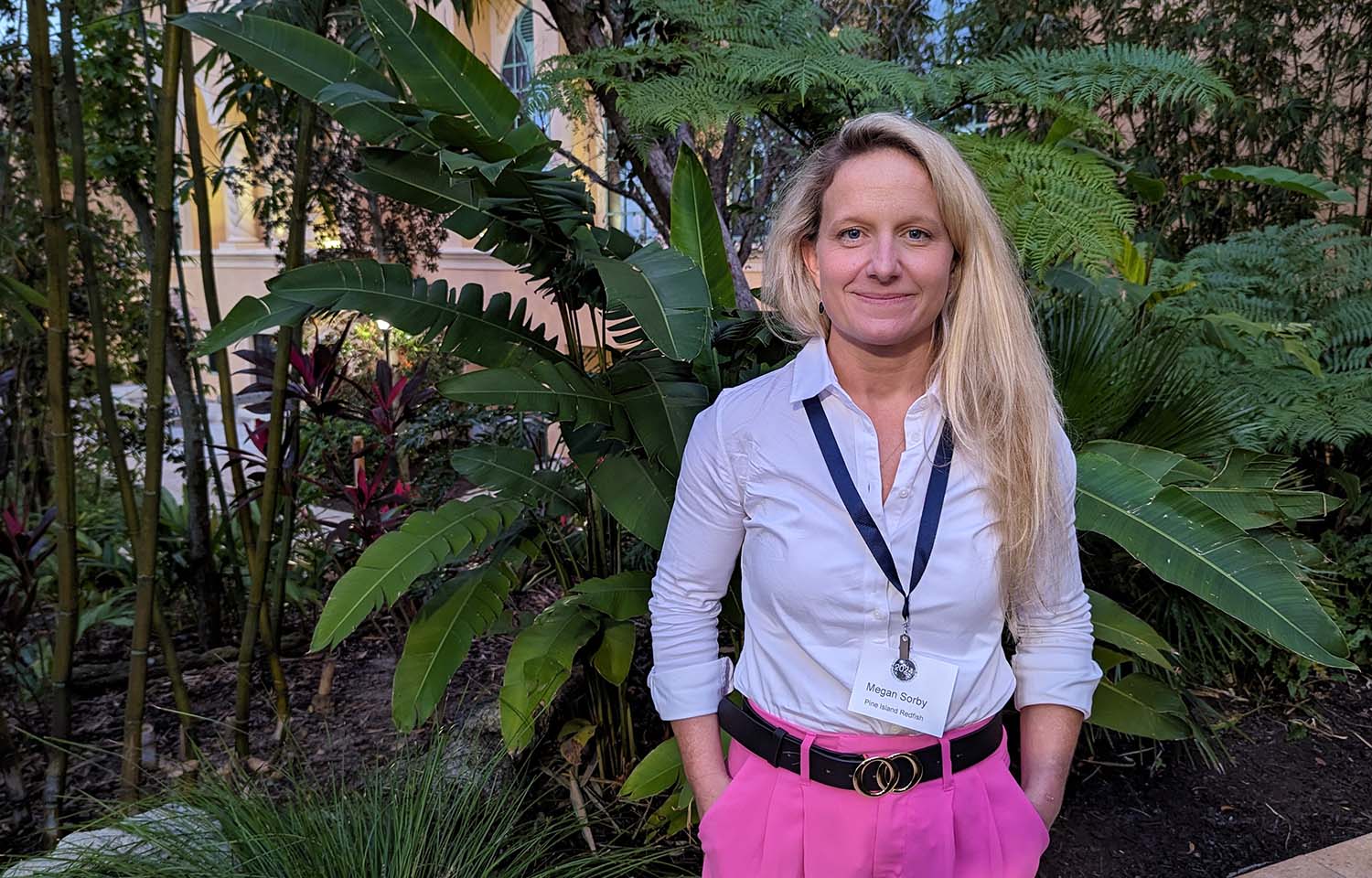Megan Sorby is hoping to reignite commercial interest in red drum through her new company, Pine Island Redfish.
For over three decades, red drum – commonly known as redfish – has not been available to commercial fishermen in the Gulf of Mexico after stock assessments found declining populations after heavy overfishing in the 1980s. In the span of a decade, the species disappeared from U.S. menus, and although there are a few aquaculture operations sprinkled across the U.S. South that produce red drum, their volumes are not large enough to support a national market.
Sorby is working to change that by establishing a new recirculating aquaculture system (RAS) on Pine Island in Southwest Florida, located near the city of Fort Myers. Her company, founded in late 2023, is hoping to reestablish red drum in the U.S. commercial market.
“I think redfish, for us, is the real story that RAS aquaculture is supposed to be telling,” Sorby told SeafoodSource during the Global Seafood Market Conference, which ran from 23 to 25 January in Orlando, Florida, U.S.A. “We talk so much about positioning ourselves close to markets, about providing a domestic supply of a species that is not available domestically – and that’s what redfish is.”
Much of the older population the U.S. Gulf of Mexico region remains familiar with redfish, and Sorby hopes to rekindle excitement for the fish as the basis of her company's marketing strategy. And its existence as a sport fish means it’s already in the public consciousness in the U.S. Southeast, eliminating a barrier to getting it to market.
“It has a market presence, or a market history, already that we can build up,” Sorby said. “What we hope to do is bring back that domestic supply sid. The real challenge is scaling it up.”
As it gets off the ground, Pine Island Redfish is using data accumulated from scientific enterprises that worked to raise the fish for restocking purposes. That research has given Sorby data on stocking densities, growth curves, and more.
"[The U.S.] government pumped a lot of money into state fish and wildlife agencies and nonprofits to do the research on the fish, so that foundational work is there to hopefully support the growth of an industry," she said. “We know all that work is there supporting the model of what a larger scale looks like."
Sorby is no stranger to what it takes to establish a RAS operation. She is the former operations manager of Kingfish Maine, which under her watch achieved full permitting, and is set to begin construction once the company achieves sufficient funding.
Pine Island, Florida, is an ideal location for the company's farm, according to Sorby. The area has already commercialized aquaculture of a few species, including catfish and crayfish, and there’s already an industry-focused research presence in the area.
“There may be intricacies of each species or the way a particular system is designed, but we’re all working on the same core challenges – you’re still farming an animal in a closed condition,” Sorby said.
Despite the welcoming environment, Pine Island Redfish will still have to achieve a feat no other company has ever accomplished – grow commercial volumes of red drum in a land-based facility. But Sorby said her team is resolved to achieve its goals.
“We joke around that very few things are purpose-built for aquaculture, and that 90 percent of what we do is arts and crafts, because you’re trying to build the lunar lander out of some parts,” Sorby said. “That doesn’t matter whether you are offshore or whether you’re land-based. You’re still finding new solutions to these problems that arise. But I think the breadth of experience that our group has had brings about a really well-rounded perspective.”
Besides growing fish, Sorby said Pine Island Redfish also plans to use waste products from the farm to fertilize and grow red mangrove trees, a key shoreline species in Florida.
Establishing the RAS is the first step for Sorby and her team. The next will be to create a market for the species. To that end, the company has gotten help from ...
Photo by Chris Chase/SeafoodSource








